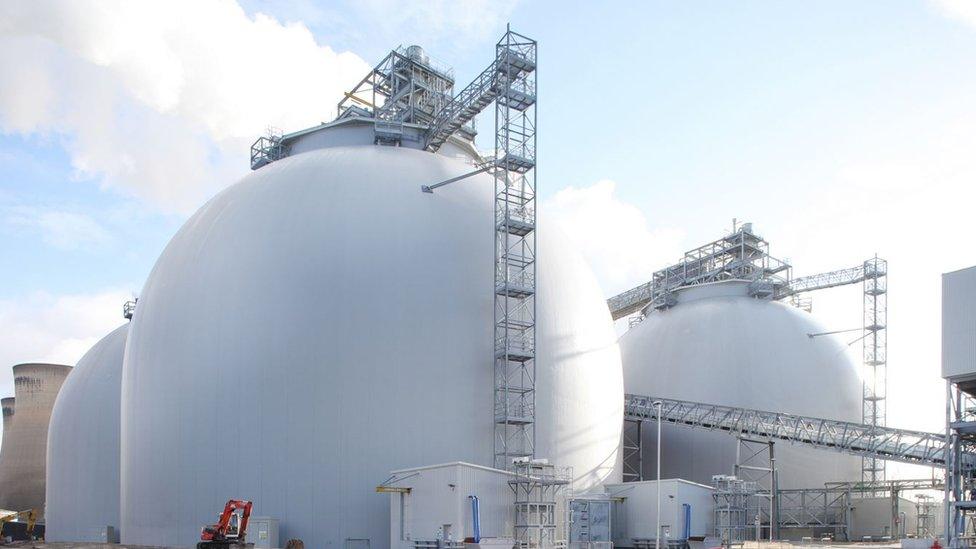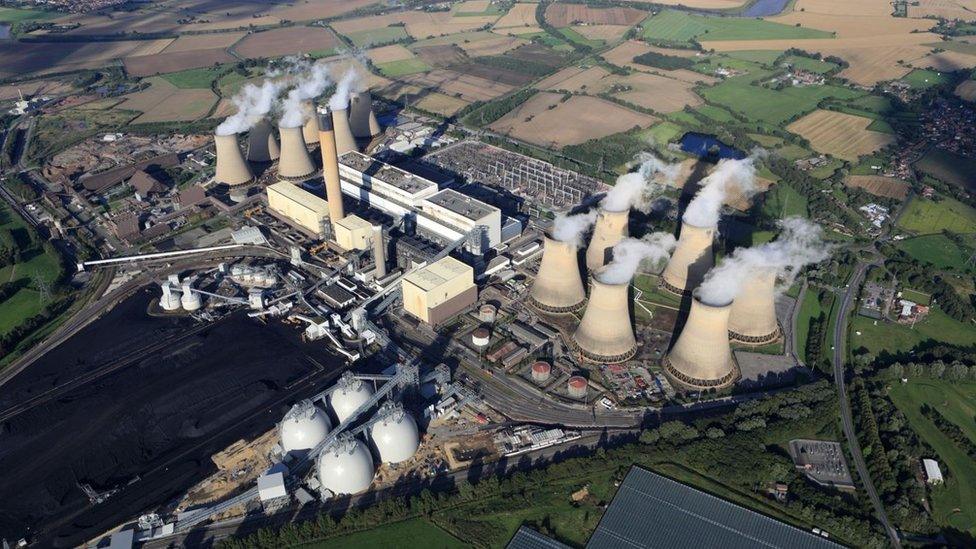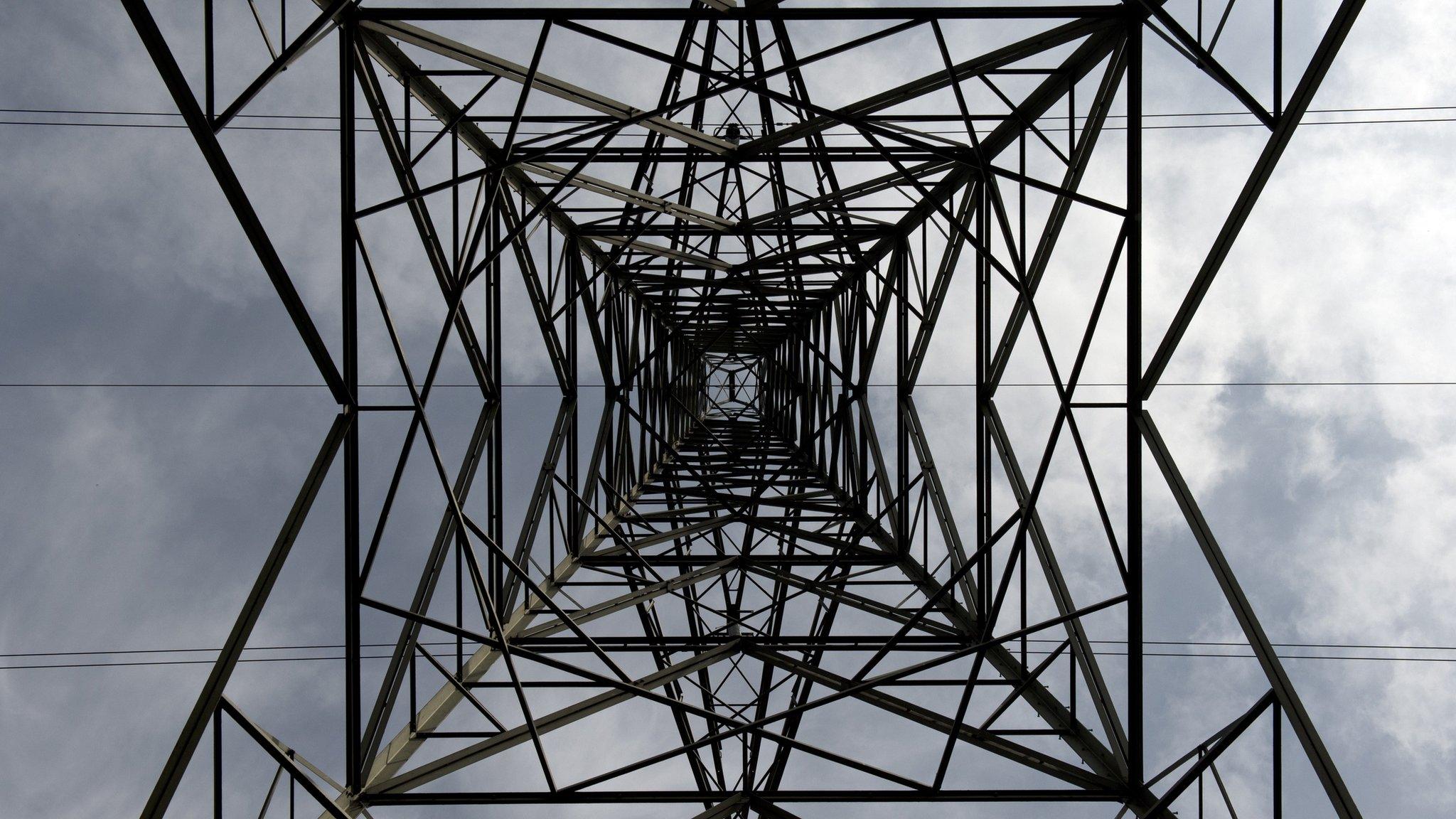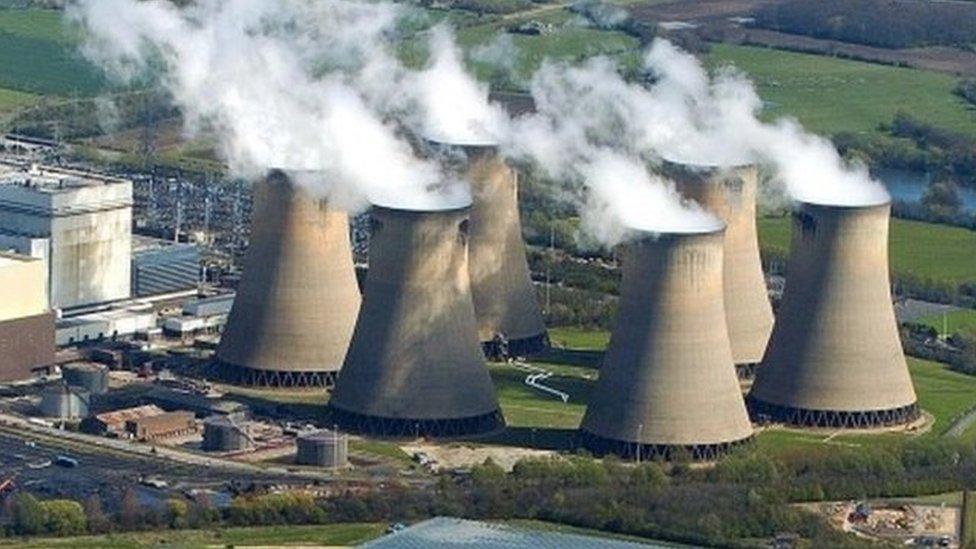Drax bid to convert plant from coal to biomass probed by EU
- Published

Drax has already built biomass domes at its power plant
The European Commission has opened an investigation into whether a plan by Drax to convert a plant from coal to biomass breaches state aid rules.
The Commission said it would look into whether the move was unfair to competitors. Drax shares fell 3.3%.
The UK aims to close all coal-fired generators by 2025, and recently won EU clearance to support a biomass plant being converted by RWE.
Drax said the inquiry was expected as part of the approval process.
The Commission statement said it supported member states' efforts to increase the use of renewable energy, but not at the expense of giving an unfair advantage over competitors and consumers.
The Commission, the European Union's executive arm, said it "fully supports member state efforts to increase the use of renewable energy and pursue EU energy and climate objectives.
"At the same time, EU state aid rules make sure that the cost of such support for consumers is limited and does not give certain operators an unfair advantage over competitors."

The investigation will examine whether public funds "are limited to what is necessary" and do not distort the market for biomass fuels, the statement added.
Last month, the Commission approved UK plans to subsidise the conversion of RWE's Lynemouth coal-fired power plant in northern England to burning biomass, a move seen as positive for Drax.

Analysis: John Moylan, BBC industry correspondent
Around 3%-4% of the UK's electricity is being generated by burning biomass pellets at Drax's huge plant in North Yorkshire. Two of its six coal units have been fully converted to biomass. Drax says a third unit is 85% converted but it needs the subsidy scheme to complete the job.
The scheme was one of three biomass projects given the green light by the government back in 2014. The other two have now received EU state-aid approval. But Drax is on a far bigger scale.
The government insists the probe is a normal part of the EU's State Aid process. But having seen its share price lose more than 70% of its value in the past 2 years, this is more uncertainty that Drax could do without.

Over-compensation?
Drax operates the UK's largest power station, at Selby, North Yorkshire, which supplies about 8% of the country's electricity. It has already converted two of its six generating units to burn biomass in place of coal.
The UK aid consists of an offer of a "strike price" for the electricity generated. If the average wholesale price falls below that level, the Drax power plant operator would receive an additional payment.
The government strike price for biomass conversion projects is £105 per megawatt-hour, compared with a current day-ahead power market price of £37 per MWh.
One key area for investigation by the Commission will be whether the strike price means Drax will be overly compensated.
Drax said on its website, external: "This is the next step in the process for obtaining state aid approval and is in line with expectations.
"Drax welcomes the opportunity to work with the UK government and the EC to complete the state aid clearance process."
The plant would run on wood pellets, mainly imported from the US and South America.
- Published11 December 2015

- Published19 November 2015
